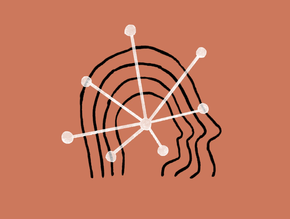Despite boons, AI could pose human rights threat: ECHR

The Equality and Human Rights Commission (EHRC) has raised concerns regarding the United Kingdom's plans for AI, asserting that they fail to adequately protect human rights
In a recent statement, the EHRC emphasised the importance of robust safeguards and ethical considerations in AI development to prevent potential discrimination and bias.
The EHRC has expressed reservations about the UK's approach to integrating AI technology into various sectors without sufficiently addressing the potential risks it poses to human rights.
While recognising the benefits of AI, the commission asserts that the absence of comprehensive safeguards in the government's AI plans could lead to discriminatory practices and violations of individuals' rights.
The UK’s oversight of ethical considerations in AI
The EHRC highlights the crucial role of ethical considerations in AI development.
The commission insists that the UK's AI strategies should prioritise the prevention of biases and discrimination that could disproportionately affect marginalised groups.
Without robust ethical frameworks and safeguards, the deployment of AI systems risks perpetuating and even exacerbating existing inequalities.
The EHRC called for specific measures to be implemented to address bias and discrimination in AI systems.
It emphasises the necessity of transparency and accountability in the development and deployment of AI algorithms. By proactively monitoring and addressing bias, AI systems can be designed to provide fair and equitable outcomes for all individuals, regardless of their background or characteristics.

Calls for the strengthening of legal frameworks
To enhance human rights protection, the EHRC urges the UK government to strengthen existing legal frameworks related to AI.
The commission recommends reviewing and amending legislation to ensure it is fit for purpose in the rapidly evolving AI landscape. By establishing clear responsibilities and obligations for developers and users of AI, legal frameworks can serve as a safeguard against potential human rights violations.
The EHRC emphasises the importance of collaborative efforts between government, industry, civil society organisations and the public to develop AI policies that prioritise human rights.
Engaging with various stakeholders can help identify potential risks and ensure a balanced approach to AI implementation.
Public awareness campaigns and consultations can also foster a greater understanding of AI's impact on human rights and empower individuals to participate in shaping AI policies.
The EHRC's critique of the UK's AI plans serves as a reminder of the urgent need for robust human rights safeguards in AI development. By integrating ethical considerations, addressing bias and discrimination, strengthening legal frameworks, and fostering collaborative efforts, the UK can lead the way in responsible AI deployment.
It is imperative that AI technologies are designed and utilised in a manner that respects and upholds the fundamental rights and dignity of every individual.
The ramifications of an ever-expanding AI ecosystem has, of course, international implications and does not confine itself to the isles alone.
International AI Human Rights concerns
The European Union
In the European Union, there have been calls for a ban on the use of facial recognition technology in public spaces due to concerns about privacy and civil liberties.
The European Parliament has also called for the development of ethical guidelines for AI to ensure that it is used in a way that respects human rights.
Lawfare reports that in order to move forward with AI and truly take advantage of its benefits, policymakers need to consider the impacts of these technologies on the whole range of fundamental rights and freedoms protected by human rights instruments such as:
- The Universal Declaration of Human Rights
- The International Covenants
- The U.S Bill of Rights
- The European Union Charter of Fundamental Rights
China
In China, the government has been using AI to monitor and control its citizens, particularly in the Xinjiang region where the Uighur Muslim minority is being targeted.
The technology is used to track people's movements, monitor their online activity, and even predict who might be a threat to the government.
Human Rights Watch has reported that China has enlisted AI technologies, provided by private companies—some with links to the state and the military—to help them automatically identify people from public surveillance footage streams and telephone calls; they are also using big data systems to identify individuals posing political threats
USA
In the United States, there have been concerns about the use of AI in law enforcement, particularly in relation to facial recognition technology. Critics argue that the technology is biassed against people of colour and can lead to false arrests.
Brooking relates, “Mass surveillance affects all Americans through a wide suite of technologies-but facial recognition, which has become one of the most critical and commonly-used technologies, poses special risks of disparate impact for historically marginalised communities.”
Whether this is the case or not, facial recognition AI-tech has at least the potential for racial bias.

Global economics
According to an article on the International Monetary Fund (IMF) blog, new technology risks widening the gap between rich and poor countries by shifting more investment to advanced economies where automation is already established.
This could have negative consequences for jobs in developing countries by threatening to replace rather than complement their growing labour force, which has traditionally provided an advantage to less developed economies.
The article notes that AI could widen the gap between rich and poor nations, and that policies are needed to mitigate the negative impact of AI on employment and inequality.
The importance of regulation, and intelligent dissemination of AI grows in symmetry to its power. If we are able to deploy it reasonably, it has the potential to not enhance human lives and create a world of hope. Failing that, the consequences could be much darker. Let there be light.







